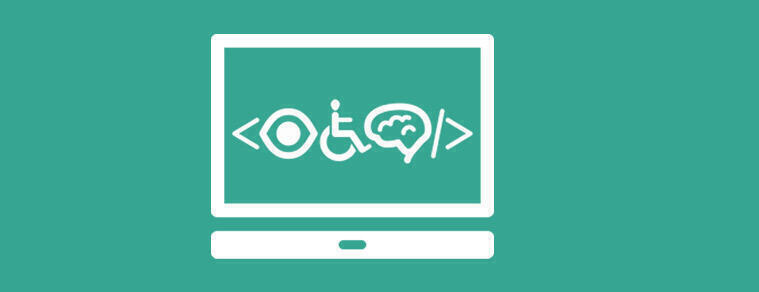
Web accessibility and why your business needs to consider it
So what is web accessibility? It’s making your website and its content accessible to everyone no matter who they are.
Hang on! Isn’t that what you wanted when you built your website? Isn’t that what you asked for when you spent money on an SEO expert to bring you more visitors?
The truth is, until your website is accessible, you are turning away customers and leaving money on the table. According to Fifth Quadrant Analytics, “the disability market represents an annual disposable income of $1 trillion—and $544 billion in the US alone.”
More and more businesses are developing their online presence because that’s where their customers are. It’s also where your customers are, and it’s where your customers with disabilities are too.
You Have Users With Disabilities
At this point you might be thinking: ‘I don’t have any users with disabilities, no one has ever complained about my website.’ Chances are, no one will complain, they’re already buying from someone else.
I have had many conversations with designers and developers and the same comment keeps popping up, they are only a small percentage so why bother.
The statistics for disability shows it affects 19% of working age people in the UK and 19% of all Americans and approximately 18.5% of Australians and these statistics are a few years old.
Disability on the internet includes things like:
- Problems with sight
- Problems using a mouse or keyboard
- Problems with hearing
- Problems with reading and understanding
Why Do You Need an Accessible Website?
There are three key benefits of having an accessible website:
- Your website will comply with your country’s equality law
- You’ll save money by working in accessibility on your own terms
- You’ll make more money by expanding your customer base
What is Disability?
The term “disability”, has four different meanings:
- Sight disability – for example, blind, partially sighted or colour blind
- Hearing disability – for example, deaf or hard of hearing
- Motor disability – for example, problems with motor skills or slow movement
- Cognitive disability – for example, learning difficulties or problems with concentration or reading
Accessibility and Search Engine Optimisation (SEO)
Search Engine Optimisation (SEO) is the practice of making a website as attractive to search engines as possible. Websites with good SEO will appear at the top of search results for keywords associated with your business.
SEO and accessibility go hand-in-hand because websites that are inaccessible to users with disabilities are also inaccessible to search engines. Search engines can only read certain content, cannot listen to or watch media, and do not use a mouse. Their understanding of a website is based on limited features and they do not always understand the context.
One of the most powerful elements of SEO is creating machine-readable content. This is content that can be read by humans as well as assistive technologies, like screen readers.
The days of ‘stuffing’ content full of keywords to rank higher have gone. Search engines look for in-depth content with semantically linked keywords that appear naturally. For example, descriptive alternative text for images helps both search engines and users.
Many other areas overlap, including descriptive page titles, descriptive link text, logical structure, text transcripts and readable URLs.





